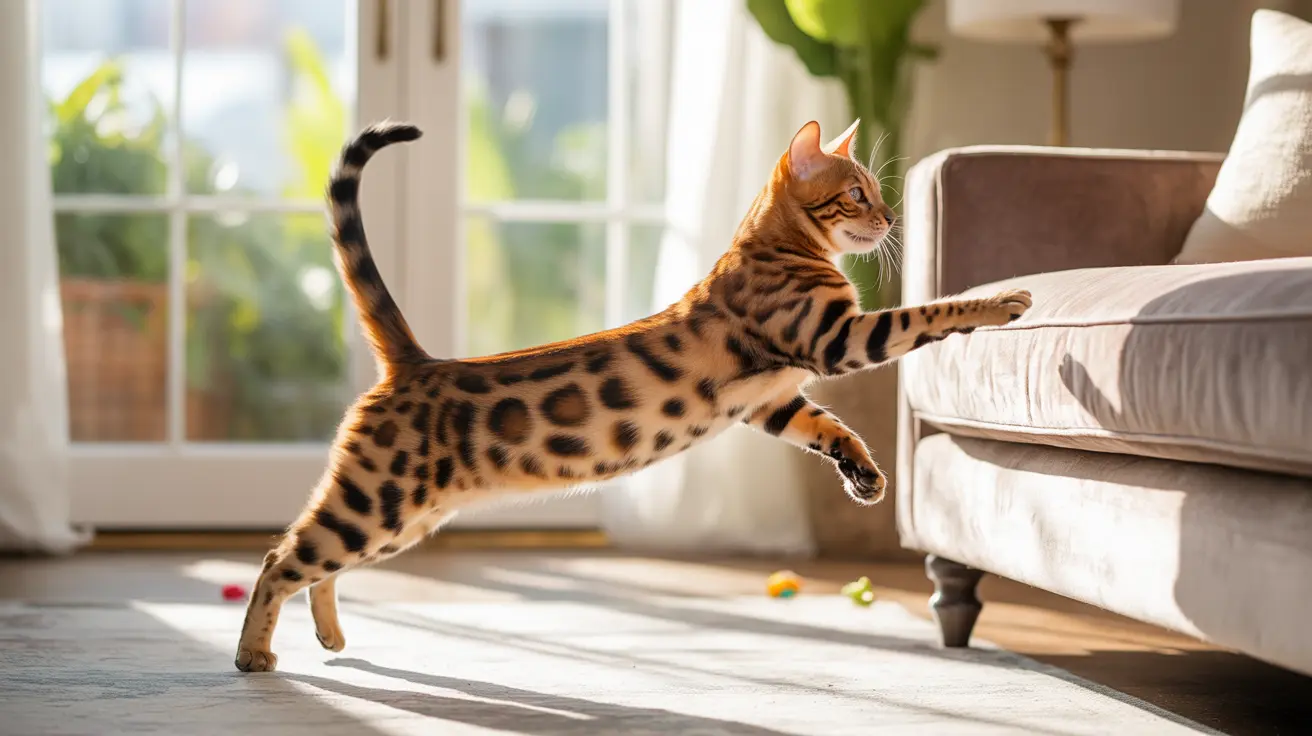Understanding ADHD-Like Behaviors in Cats
First and foremost, it's important to understand that ADHD as a clinical diagnosis doesn't exist in cats. While cats can display behaviors that mirror ADHD symptoms in humans – such as hyperactivity, impulsiveness, and difficulty focusing – these behaviors typically have different underlying causes.
Common behaviors that might make owners suspect ADHD include:
- Excessive running and jumping
- Inability to settle or relax
- Frequent distraction during play or feeding
- Sudden bursts of energy ("zoomies")
- Destructive behaviors
- Poor response to training
Normal Cat Behavior vs. Potential Issues
Many behaviors that appear problematic are actually normal aspects of feline development and personality. Kittens and young cats naturally display high energy levels and short attention spans as part of their growth and learning process.
However, certain signs might warrant closer attention:
- Constant hyperactivity that persists beyond kittenhood
- Behavior that interferes with eating or sleeping patterns
- Self-destructive or dangerous activities
- Sudden behavioral changes in adult cats
Medical Conditions That Can Mimic ADHD
Several health conditions can cause hyperactivity or attention issues in cats. These include:
- Hyperthyroidism
- Neurological disorders
- Pain or discomfort
- Anxiety disorders
- Dietary issues
This is why it's crucial to consult with a veterinarian if you notice concerning behavioral changes in your cat.
Managing an Overactive Cat
While cats can't be diagnosed with ADHD, there are several effective strategies for managing hyperactive behavior:
Environmental Enrichment
- Provide climbing structures and scratching posts
- Rotate interactive toys regularly
- Use food puzzles for mental stimulation
- Create designated play areas
Structured Play Sessions
Regular, scheduled play sessions help channel excess energy constructively and strengthen the bond between cat and owner. Aim for at least two 15-minute sessions daily.
Establishing Routine
Cats thrive on predictability. Maintaining consistent feeding, play, and sleep schedules can help reduce anxiety and excessive energy.
Frequently Asked Questions
Can cats actually have ADHD like humans do?
No, cats cannot be diagnosed with ADHD as it's defined in humans. While they may show similar behaviors, ADHD is a specific neurodevelopmental disorder that is not recognized in feline medicine.
What behaviors in cats might look like ADHD but are normal?
Normal cat behaviors that might resemble ADHD include sudden bursts of energy (zoomies), playful hyperactivity, short attention spans during play, and occasional distractibility. These are typically more pronounced in kittens and young cats.
What health issues can cause hyperactivity or ADHD-like symptoms in cats?
Several health conditions can cause hyperactivity, including hyperthyroidism, neurological disorders, pain, anxiety, and dietary issues. Any sudden behavioral changes should be evaluated by a veterinarian.
How can I help manage my cat's hyperactive or impulsive behavior at home?
Provide environmental enrichment through toys, climbing structures, and scratching posts. Establish regular play sessions, maintain consistent routines, and ensure your cat has appropriate outlets for energy.
When should I take my cat to the vet for hyperactivity or unusual behaviors?
Consult a veterinarian if you notice sudden behavioral changes, constant hyperactivity that disrupts normal functions, destructive behaviors, or if your cat seems unable to calm down or rest properly.
Conclusion
While cats cannot have ADHD in the clinical sense, understanding and properly managing hyperactive behavior is crucial for their wellbeing. By recognizing normal feline behavior patterns, providing appropriate enrichment, and staying alert to potential health issues, you can help your energetic cat live a happy, balanced life.






